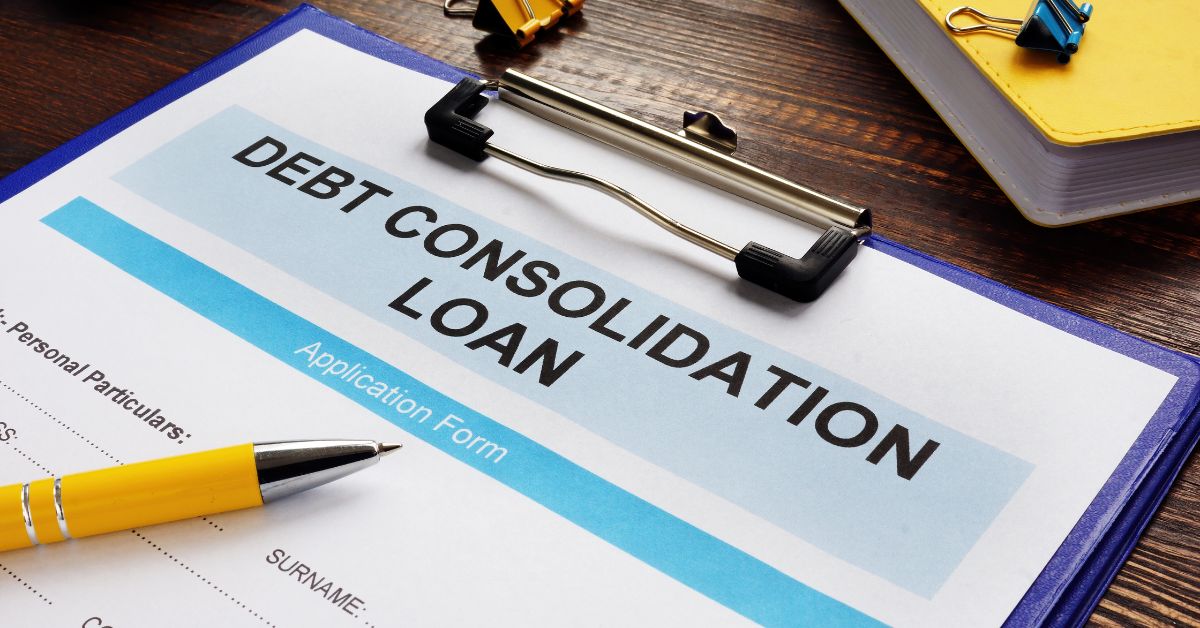
Navigating the financial landscape in any country can be tricky, and South Africa is no exception. Among the many tools at our disposal to manage debt, one strategy that often garners attention is debt consolidation.
Understanding Debt Consolidation
Debt consolidation is a debt management strategy that involves taking out a new loan to pay off multiple debts. This means that instead of juggling different debts, each with its own interest rates and due dates, you have only one payment to make each month. The goal of debt consolidation is to simplify your financial management and possibly reduce the overall interest you pay.
This technique is commonly used to manage credit card debt, student loans or other forms of unsecured debt. The process usually involves borrowing enough to pay off all your unsecured debts, leaving you with only one debt (the consolidation loan) to manage. It does not eliminate your debt, but it restructures it, ideally to provide more favourable repayment terms.
But while debt consolidation has its apparent benefits, it is not a magical solution to all your financial challenges. It requires discipline, commitment and a clear understanding of your financial capabilities.
The Debt-Consolidation Process
Defining Debt Consolidation in the South African Context
The concept of debt consolidation in South Africa mirrors that in other parts of the world, with some context-specific considerations. Fundamentally, it is a process that involves taking out a single, larger loan to settle multiple smaller loans. This approach aims to manage and eventually reduce the debt burden by lowering interest rates, monthly repayments or both.
However, to qualify for a consolidation loan in South Africa, lending institutions typically require that you have a reasonably good credit record. They also tend to look more favourably upon applicants who have a stable income.
The Procedure for Consolidating Your Debt in South Africa
The process for consolidating your debt in South Africa is relatively straightforward:
- Assess Your Debts. Compile a list of all your debts, including the outstanding amount, interest rate and repayment period. This gives you a clear picture of your debt situation.
- Find a Suitable Lender. Shop around for the best possible consolidation loan. This could be from your current bank, another bank or a specialist debt-consolidation company. Ensure the lender is registered with the National Credit Regulator (NCR) to protect your rights as a consumer.
- Apply for the Loan. Once you find a suitable lender, submit your application along with any required documentation, such as proof of income, bank statements and identification documents.
- Pay Off Your Debts. If approved, the funds from the consolidation loan are used to pay off your outstanding debts. Some lenders may pay your creditors directly.
- Repay the Consolidation Loan. You then focus on repaying the consolidation loan according to your new repayment schedule.
This process is typically managed by the debt-consolidation company or the bank. It is advisable to involve a reputable financial advisor to guide you through this process.
Different Types of Debt That Can Be Consolidated
In South Africa, different types of unsecured debts can be consolidated. These include but are not limited to:
Credit card debt. This is one of the most common forms of debt that people consolidate due to the high-interest rates associated with credit cards.
Personal loans. Whether obtained from banks or other financial institutions, personal loans can be consolidated into one payment.
Store accounts. Store cards often carry high interest rates, making them good candidates for consolidation.
Overdrafts. These can also be included in a consolidation loan.
It’s worth noting that secured debts, such as home or car loans, are typically not included in debt consolidation because they are tied to an asset and carry lower interest rates. However, it’s always wise to confirm this with your chosen lender or financial advisor.
The Pros of Consolidating Your Debt
Simplified Payment Structure
The main advantage of debt consolidation is the simplification it brings to your financial management. By combining multiple payments into one, you reduce the number of monthly payments you have to keep track of. This streamlined process reduces the likelihood of missed payments, which can lead to penalties and negatively affect your credit score. Consolidating your debt into one payment can save you stress and help you manage your budget more effectively.
Lower Interest Rates
The aim of many consolidation loans is to provide borrowers with lower interest rates than the combined rates of their individual debts. If your consolidated debt attracts a lower interest rate, you can save money over the long term. However, the interest rate offered will depend on factors like your credit score, the size of the loan and the terms of the loan agreement.
Possible Credit Score Improvements
Over time, responsible debt management through consolidation can potentially improve your credit score. Timely payment of your consolidation loan can reflect positively on your credit report. It’s worth noting, however, that the initial application for a consolidation loan can cause a temporary dip in your credit score due to the lender’s credit check.
Emotional Relief and the Psychological Implications
Debt consolidation can provide emotional and psychological relief. Managing multiple debts can be stressful but knowing that you only have one payment to worry about each month can provide a sense of control and peace of mind. Additionally, seeing your smaller debts cleared (even though they are being replaced by a larger one) can boost your morale and encourage better financial habits moving forward.
The Cons of Consolidating Your Debt
Potential for Higher Overall Costs
While the monthly payments on a debt consolidation loan can be lower, this is often due to a longer repayment period. Thus, you may end up paying more in total interest over the life of the loan. Before consolidating your debt, it is crucial to calculate the total cost of your existing debts against the proposed consolidation loan. A seemingly lower interest rate over an extended period can amount to more than the sum of your current interest payments.
Extended Repayment Periods
Longer repayment terms may seem like a benefit initially because they lower your monthly payment. However, being in debt for an extended period can also be a significant drawback. It prolongs the period during which you need to exercise financial discipline, and any slip-ups during this time can land you back in financial difficulty. It also delays your ability to start saving or investing for your financial future.
False Sense of Financial Security
After consolidating your debts, the immediate relief of lower monthly payments and seeing your smaller debts cleared might instil a false sense of financial security. This feeling can lead to old habits creeping back in, such as incurring more debt due to the perceived extra money. This pitfall is something to guard against because it can lead to a more significant debt issue than before the consolidation.
Risk of Falling into More Debt
Related to the point above, once your debts are consolidated, you might be tempted to use the credit that is now available to you on your credit cards or store accounts. Unless you are disciplined enough to resist this temptation, you may find yourself in a cycle of escalating debt.
» Discover: Key steps to manage technical debt
Alternatives to Debt Consolidation
Debt review, also known as debt counselling, is a process created by the National Credit Act (NCA) to help South African consumers who are struggling with debt. Under debt review, a debt counsellor assesses your income and debts to negotiate reduced payments with your creditors and create a manageable budget for you. It can be an effective alternative if you’re unable to qualify for a consolidation loan due to a poor credit score. However, bear in mind that while under debt review, you can’t take on any new credit until all your debts are paid off and you’ve received a clearance certificate from your debt counsellor.
Debt Snowball and Debt Avalanche Methods
The debt snowball and debt avalanche methods are do-it-yourself strategies for paying off debt. With the debt snowball method, you begin with the smallest debt while simultaneously making the minimum payments on your bigger debts. When you’ve finished paying the smallest debt, you then pay the next lowest debt and so on. This method can give you quick wins and help build momentum.
The debt avalanche method, on the other hand, focuses on paying off the debt with the highest interest rate first while maintaining minimum payments on the rest of your debts. This approach can save you more in interest over the long run but may require more time to see noticeable results.
These methods require a high level of discipline and dedication but can be effective if followed consistently.
DIY Debt-Repayment Strategies
You can also create your custom debt-repayment strategy. This could involve tightening your budget, increasing your income or both. The idea is to free up as much money as possible to put towards your debts. It’s all about being disciplined and committed to your plan. DIY strategies give you more control and can be tailored to your specific situation. However, they require the most discipline and dedication out of all the options.
About Arcadia Finance
Easily access your loan via Arcadia Finance. The application process is free, and you can opt for one of 10 reputable lenders. Each lender operates under the guidelines provided by the National Credit Regulator in South Africa.
Things to Consider Before Consolidating Your Debt
The State of Your Credit Score
Your credit score is a critical factor in determining whether you qualify for a consolidation loan and what interest rate you’ll be offered. In South Africa, credit scores range from 330 to 830. A higher score increases your chances of securing a consolidation loan with favourable terms. If your credit score is low, you might want to consider improving it before applying for a consolidation loan.
Comparison of Interest Rates
Before deciding to consolidate your debt, it’s crucial to compare the interest rates of your existing loans with the proposed interest rate of the consolidation loan. Remember, the objective of debt consolidation is not just to simplify your repayments, but also to lower your total cost of debt.
Assessing Your Financial Discipline
Debt consolidation requires a high level of financial discipline. If you consolidate your debts, but then continue to accumulate more debt, you could find yourself in a worse financial situation than before. Therefore, before consolidating your debt, you should be confident in your ability to stick to a budget and avoid unnecessary spending.
Analysing the Loan Terms
Loan terms are more than just interest rates. They also include the length of the loan and penalties for missed payments, among other things. You should fully understand these terms before deciding to consolidate your debt. Remember that longer loan terms might mean lower monthly payments, but they could also result in higher overall interest payments.
Conclusion
There’s no one-size-fits-all answer to this question. Debt consolidation can be a powerful tool for managing and overcoming debt, but it’s not a magic solution. It requires a high level of financial discipline and an understanding of your financial situation. In some cases, it might be better to consider alternatives like debt review or DIY debt-repayment strategies.
FAQs
Debt consolidation involves taking out a new loan to pay off all your existing debts. This strategy simplifies your repayments by combining them into one.
Debt consolidation can be beneficial for some people. It can simplify repayments and potentially save money on interest. However, it also has drawbacks, such as potentially higher overall costs and a longer repayment period. It’s crucial to understand these pros and cons before deciding to consolidate your debt.
Applying for a consolidation loan can cause a temporary dip in your credit score due to the lender’s credit check. However, if you make your loan repayments on time, your credit score could improve over time.
Alternatives to debt consolidation include debt review, the debt snowball and avalanche methods, and DIY debt-repayment strategies.
Before consolidating your debt, consider your credit score, the interest rates of your current and proposed debts, your level of financial discipline and the terms of the consolidation loan. It’s also advisable to consult with a financial advisor or a debt counsellor.
Cheap loan - fast, uncomplicated, trustworthy
At Arcadia Finance you can compare loan offers from several lenders without obligation - free of charge and without any Schufa check. This gives you an overview of your options and allows you to choose the best offer.
Fill out our form now and compare interest rates at over 20 banks - transparently and quickly.

